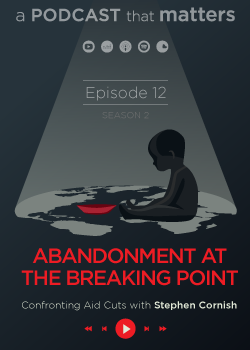Print

Water Supply Volta and Eastern Regions
Details
Locations:Ghana
Start Date:Jul 1, 1998
End Date:Jun 30, 2008
Contract value: EUR 4,568,459
Sectors: Civil Engineering, Inst. Devt. & Cap. building, Water & Sanitation
Categories:Consulting services
Funding Agencies:
Date posted:Oct 20, 2014
Description
Hygienic water supply to the population of smalland medium towns in Ghana is insufficient, the main reason being a lack of commercial management structures. To overcome this situation the Government of Ghana decided to decentralise and,to a large extent, also to privatise the water sector.In future, water supply facilities are to be trans-ferred to the district administrations, with localcommunities being in charge of management andoperation of the installations according to commercial principles. The Community Water and Sanitation Agency (CWSA) will act as "facilitator" during atransition period, providing training to the newowners and being in charge of overall planning andco-ordination. Decentralisation/commercialisation/privatisation ofwater supplies:The aim of the project is to improve water supply inselected small and medium towns of the Volta and Eastern Regions by preparing the communities fortaking over the responsibility for water supply andby qualifying them to manage and operate the sys-tems on their own or by private sector participation,in accordance with the existing legal framework.
The Services
Decentralisation/commercialisation/privatisation of water supplies:
• Advising the communities on suitable, adapted models for operation of their water supplies (owner operated public utility, service or management contracts, joint ownership with private sector company).
• Assisting the communities in the establishment of operation units.
• Defining staff requirements for operation units.
• Developing internal rules of procedure/bylaws for operation of the supply unit.
Strengthening of planning and management capacities of the communities:
• Providing the future operational and administration staff with the necessary technical and management know-how for a sustainable and efficient operation of their units.
• Organisationalmanagement.
• Developing and introducing adapted manage-ment information systems (MIS) as well as anoperation and monitoring system to facilitate preventive maintenance and a prompt reaction onbreakdowns and difficulties in the supply system (repair, tariff adaptations etc.) and to reduce production downtimes as much as possible.
• Developing business plans.
• Developing and introducing appropriate accouning, billing and collection systems.
• Assisting in setting up tariffs (based on the respective production cost) and in the application for tariff adaptations at the regulatory authority (Utilities Regulatory Commission).
• Performing permanent cost control.
• Developing and introducing a cash management system for the use of periodic cash surpluses.
Rehabilitation of water supply systems:
• Defining standard design criteria.
• Elaborating and updating profiles on the state and rehabilitation needs of the supply systems.
• Pre-investment studies.
• Defining selection criteria for rehabilitation and assisting in rehabilitation measures
Improvement of hygiene situation:
• Assessing sanitary and environmental conditions in the vicinity of the water supply installations.
• Preparing and implementing sanitation and hygiene strategies.
• Promoting hygiene improvement practices, especially as regards domestic wastewater/waste.
• Introducing Sanitary Volunteers who carry out information and awareness rising campaigns.
Water sector development:
• Strengthening the relations between the operation units and the relevant sector organisations.
• Clarifying and documenting the roles, responsibilities and relations of the different actors in thewater sector (WSDB, CWSA, DWST and DA)
• Supporting the preparation of a national water policy.
• Establishing and strengthening the “Water Directorate” (WD) as sector coordinator
.• Supporting CWSA in harmonising and scaling upO&M systems and tools.
• Improving the knowledge management in the sector by supporting CWSA in optimising its project documentations. Standardising the O&M and the M&E system that were introduced under the project as “Best Practice” and introducing these systems in the whole country to optimise their impact on the water sector.
• Harmonising donor activities especially of DANIDA and GTZ in the frame of organisational development.
Executing Agency: Community Water and Sanitation Agency.

